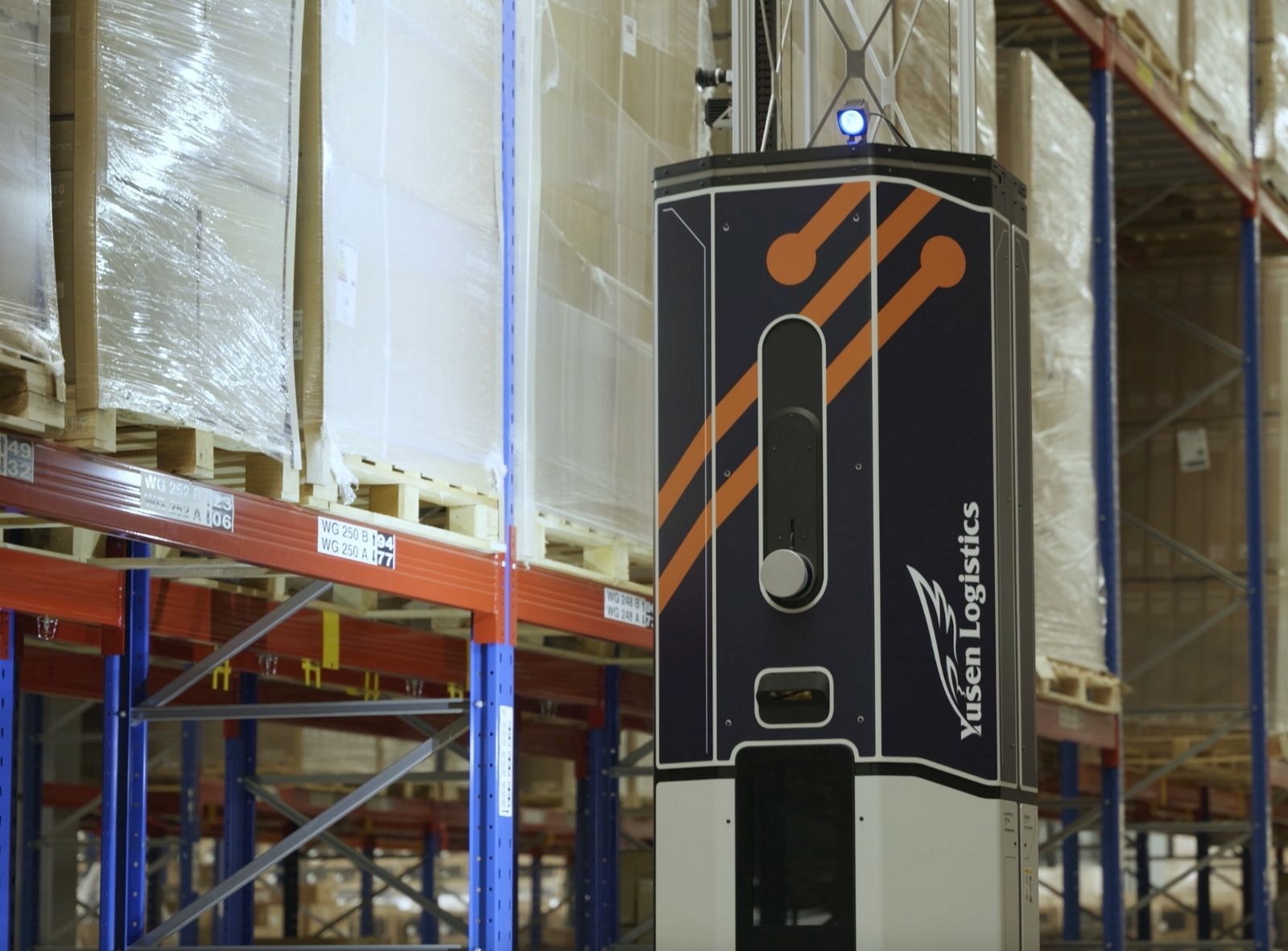Expert thought leadership, data driven insights
With a focus on industry and automation, highlighting the latest innovations and developments in the robotics industry.

Featured insights
Dexory secures $80M funding to drive global expansion goals and development of groundbreaking technology
Dexory, today announced it has successfully closed an $80 million Series B funding round. The round was led by DTCP, with participation from Latitude Ventures, Wave-X and Bootstrap Europe, along with existing investors Atomico, Lakestar, Capnamic and several angels from the logistics industry.


Enhancing DB Schenker’s US logistics operations with robotics and AI technology
DB Schenker, a global leader in logistics and supply chain management, partnered with Dexory to introduce cutting-edge robotics and AI technology into the US market. This collaboration aimed to address the day-to-day challenges of real-time stock visibility and occupancy tracking while optimising resource utilisation across DB Schenker's operations.

Yusen Logistics improves visibility and efficiency with DexoryView
Yusen Logistics, a global leader in supply chain solutions, sought to improve service delivery for its end customers, including leading electronics manufacturers, by investing in digitalisation and automation. To achieve this, Yusen Logistics partnered with Dexory to deploy the DexoryView platform, aiming to enhance real-time inventory visibility and operational efficiency.

Optimising the Bucharest distribution centre for a global home furnishing brand with Maersk
Maersk and iB Cargo partnered to optimise the Bolintin-Deal distribution centre (DC) in Bucharest, Romania. This initiative was undertaken to serve one of the largest global furniture and interior decoration companies.
Latest insights
%20(1).png)
Meet the team: Lewis Dawkins, Commercial Implementation Engineer
As a Commercial Implementation Engineer, I am responsible for deploying and implementing our Dexory robot solutions at international client sites. My role involves travelling frequently for 1-2 week deployments, working closely with cross-functional teams, and maintaining strong customer relationships.
.png)
Dexory Strengthens Leadership Team with Appointment of Chief Financial Officer
Dexory, a leader in real-time warehouse data intelligence, visibility and autonomous robotic solution, today announced the appointment of Bas Lustenhouwer as Chief Financial Officer (CFO).
-min.jpg)
The evolution of warehouse robotics: from automation to autonomy
A new generation of robotics, powered by artificial intelligence (AI) and autonomous mobile robots (AMRs),are changing the way warehouses work. These technologies don’t just make existing processes more efficient; they transform how decisions are made and executed. The result is a smarter, safer, and more scalable warehouse environment.
.png)
ODW Logistics and Raymond Storage Concepts Enhances Warehouse Performance with Dexory’s Real-Time Data and Automation
Dexory today announced that, through its strategic partnership with Raymond Storage Concepts, it has deployed its robotics and data intelligence technology at an ODW Logistics distribution center in Columbus, OH. This implementation underscores ODW Logistics’ commitment to advancing automation in their facilities and driving innovation in inventory management.

How Dexory’s data intelligence transforms peak fulfilment
In a world where next-day delivery has become the norm, warehouses are under more pressure than ever. E-commerce growth, labour shortages, and rising customer expectations have created a perfect storm. Social media conversations now openly highlight delivery performance. As a result, maintaining accuracy and speed is essential to protecting customer trust.

AI-driven warehouse analytics: Transforming inventory data into actionable insights
There is no question that the logistics landscape is transforming dramatically, and to survive, warehouses must respond with new strategies, technology and thinking.
This is why companies such as Dexory are fuelling the transition from conventional, ‘blind’ warehousing to automated, self-learning, ‘adaptive’ warehouses.
Awards and recognition

.png)







.png)






Upcoming events

Manifest 2026 | Las Vegas
Manifest Vegas brings together the most comprehensive ecosystem of innovation and transformation in supply chain and logistics.

February 9-11, 2026

The Venetian, Las Vegas, US
Ready to evolve your warehouse into a dynamic, efficient, and intelligent operational environment?
Great, we can’t wait to give you a demo.